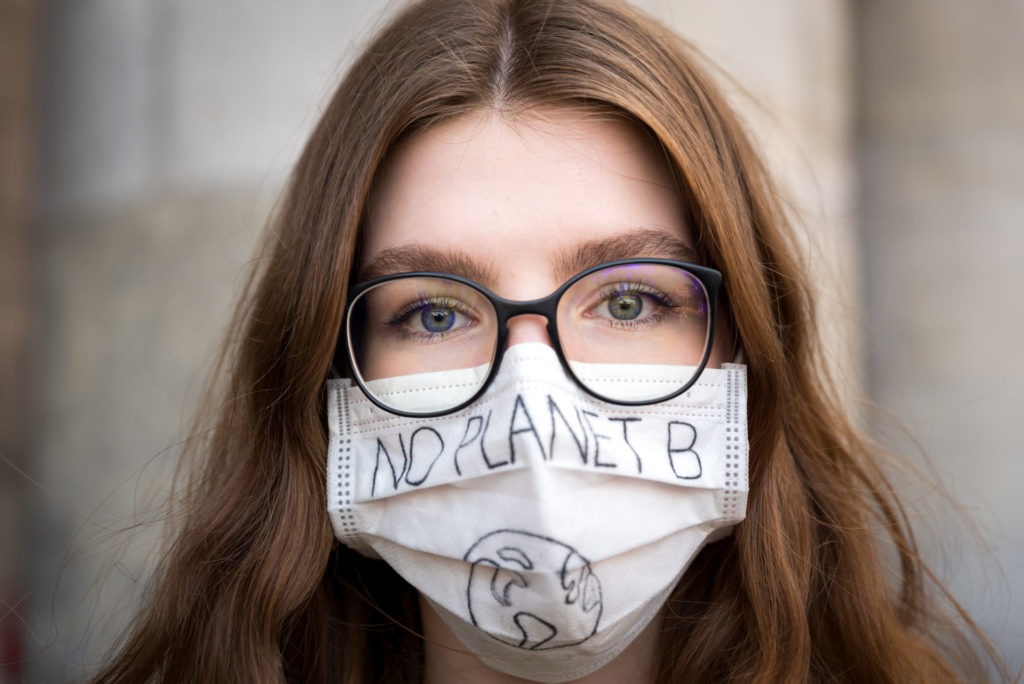There will (finally) be a strong and official climate angle on many International Women’s Day events this year across corporate Australia, thanks to climate change being listed as a 2022 “global theme”.
In previous years, we’ve lamented the lack of a climate focus at International Women’s Day events, noting that the major global issue threatening to derail every single gain made on rights for women and girls every year, had been rarely rating a mention.
Unfortunately, this continues in many ways – especially in seeing clear climate targets missing on the agenda items of key groups doing otherwise brilliant work to promote progressive agendas for women.
Australia’s response to climate change matters. This election year is an opportunity to make even more noise about it, especially with the “women’s vote” predicted to matter more so than possibly during any other election, and especially with Australia due to return to the international negotiating table at the end of the year.
International Women’s Day events and initiatives must remember this.
Overnight, the UN released its 2022 climate impacts report, an assessment from the Intergovernmental Panel on Climate Change (IPCC) which makes for sober reading on how humans and the planet will be impacted by climate change.
It found, among other things, that the most vulnerable people on Earth are being, and will be, impacted the most by climate change. We’ll see increased stress on health, water and sanitation services, as well as the loss of ecosystems that support Indigenous and local communities. Some forms of natural disasters have a higher toll than others on poorer communities, such as floods and droughts – which the report revealed have resulted in a 15 times higher mortality rate in vulnerable countries, when compared with non-vulnerable countries.
Women make up the majority of those living in poverty internationally. Women and girls have significant vulnerabilities to natural disasters, given these threaten food supplies, shelters, and safety.
Climate disasters particularly put girls’ education, safety and autonomy at risk. Already we’ve seen higher rates of child marriage in regions impacted by drought, where food shortages have seen families so desperate for food they see it as no other option. As high as 80 per cent of those displaced by climate change are female, while women face higher rates of poverty, disease and homelessness following climate disasters.
This latest IPCC report warns that the world is on track to surpass 1.5 degrees of warming within the next two decades, resulting in more climate-related events, sea level rises and overall displacement and loss of livelihoods, homes, and communities.
The realities of this warmer world are simply devastating, and particularly for women and girls.
This report also comes as floods are currently devastating parts of NSW and Queensland, with scientists already reporting that climate change may have increased the severity of this weather event.
According to the IPCC, every 0.1 degrees of warming matters.
It’s too late to prevent some significant climate impacts, but it’s not too late to prevent the worst of them. As long as the world can come together to move quickly.
The “0.1C matters” mantra is a reminder to pay attention to targets and to always push corporates and governments to do more.
It’s a reminder also to push for more women involved in climate conversations (women were significantly overlooked and outnumbered in at the COP26 in Glasgow), to support more Indigenous female leaders internationally who can bring their own expertise and knowledge to mitigating and adapting to climate risks, and to support and enable more women to pursue and achieve the legislative positions that we know can make a real difference. The IPCC itself needs more female climate scientists involved and the UN needs more women’s voices heard.
Every 0.1C matters to the rates of violence against women and girls.
Every 0.1C matters to the rates of child marriage.
Every 0.1C matters to the proportion of women and girls living in poverty and or situations making them particularly vulnerable to climate-related weather events.
Every 0.1C matters to the severity of weather events, and therefore their overall impact on the safety of women and girls, as well as the resilience of local communities.
Every 0.1C matters to women’s workforce participation, to seeing women and girls access more working opportunities and being able to contribute – as is so desperately needed – to science, tech, innovation, to improving our care and support infrastructure and ultimately to have a voice at decision-making tables.
Remember what matters on International Women’s Day.


